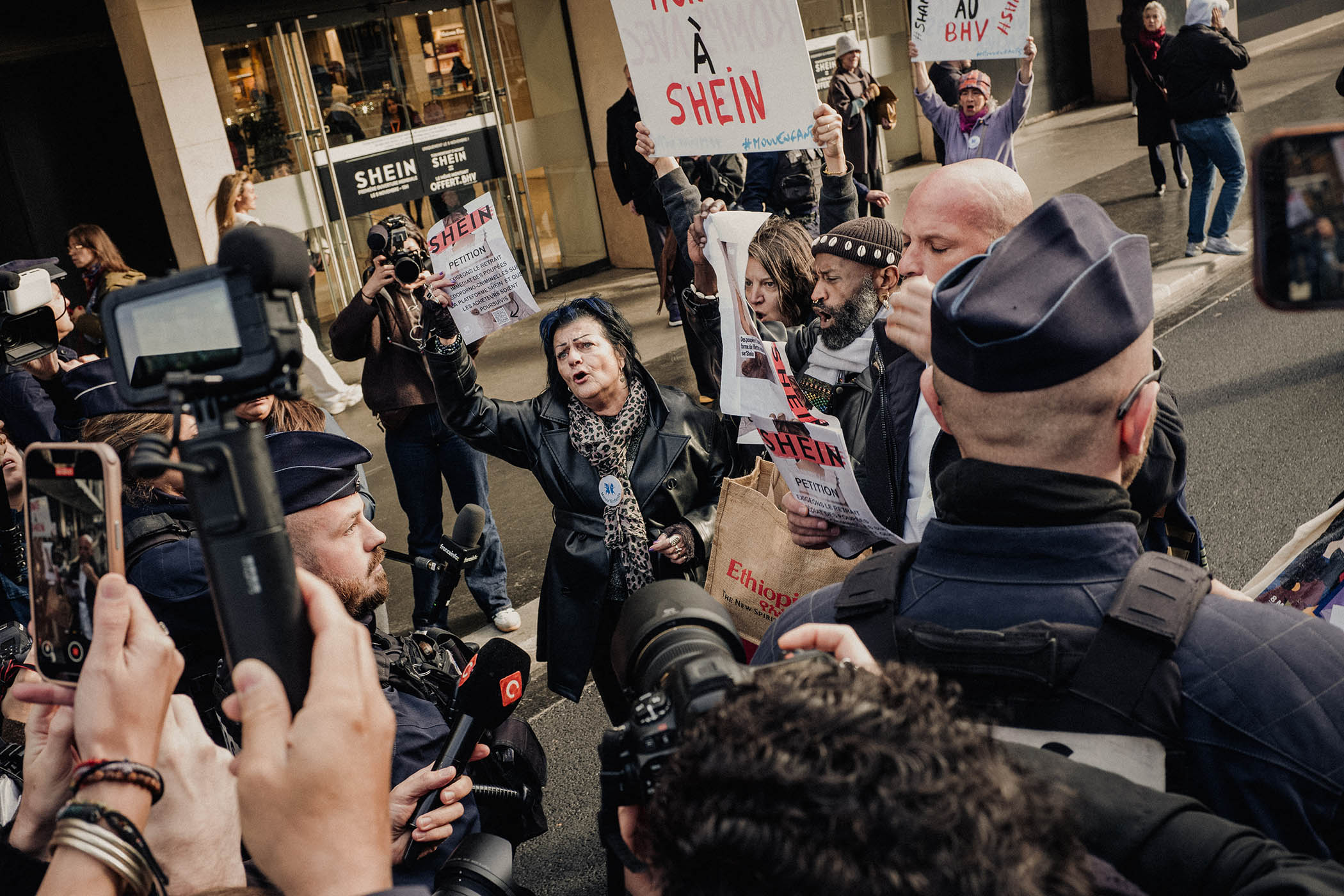Fast-fashion brand Shein held a concession at BHV Marais in Paris earlier this month that attracted long queues and 50,000 visitors in its first five days, each forking out an average of €45. Meanwhile, on the other side of the Rue de Rivoli, protesters waved placards criticising the brand’s alleged forced labour practices.
If Chinese-made fast fashion has such a strong grip on France, the home of couture, what chance do other markets stand? Shein’s bricks-and-mortar forays into the UK may have so far been limited to a few short-lived pop-ups in British cities, but the impact it has had on the fast fashion sector is decidedly permanent.
Just a few days after the Paris opening, that impact was made clear when Associated British Foods (ABF), owner of the fast-fashion retailer Primark, announced in its end-of-year results that it was considering spinning off the clothing retailer.
That ABF was considering a spin-off was not, in itself, a surprise. “I remember talking about it 15 years ago,” said Jonathan De Mello, a retail analyst and the founder of JDM Retail. Primark had always sat uncomfortably with the rest of ABF’s portfolio, which includes Silver Spoon sugar and Twinings tea. But the timing of the announcement was telling.
In the same results, Primark reported a 3.1% decline in like-for-like sales at its UK and Irish stores. By contrast, Shein reported a 32.3% rise in UK sales in 2024, with pre-tax profits rising 56.6% to £38.2m.
Although a separate stock market listing is most likely, De Mello suggests private equity buyers may be interested. Mike Ashley, the Sports Direct founder, who owns House of Fraser and has stakes in Boohoo and Asos, is likely to be priced out. “[With a valuation] of circa £10bn, it is way too big for scavengers like Ashley,” says independent retail analyst Nick Bubb.
Primark is far from the only British fast-fashion brand reeling in the wake of the rise of Shein. Shares in Asos, which recently celebrated its 25th anniversary, rose 11% on Thursday after it announced a £237m refinancing, but that hardly represented a recovery. So far this year, shares have fallen 41.5%.
Boohoo, another online fast-fashion retailer, has also had a tricky few years, with shares declining more than 50% in 2025. Meanwhile, figures from GlobalData show Shein, launched in 2008, is on track to be the UK’s sixth-biggest clothing retailer by 2027, overtaking Asos, Zara and TK Maxx.
During the 2008 downturn, brands with “Primark and Prada” price points tended to be the successful ones, while the “squeezed middle”, such as Next and Marks & Spencer – as well as Debenhams and BHS, which both fell into administration – suffered.
Now the economy is struggling again, these brands are prepared. Earlier this month, M&S said that although first-half sales had been hit by a cyber-attack, it expected its market share in fashion, home and beauty to grow 1% by 2027/28; last month, Next said UK sales had risen by 5.4% in its third quarter.
Newsletters
Choose the newsletters you want to receive
View more
For information about how The Observer protects your data, read our Privacy Policy
And in perhaps the strongest signs yet of a resurgence in mid-level pricing, Boohoo rebranded as Debenhams in March, announcing that the former department store is “very profitable and highly cash generative”, while in August, Asos announced the return of Topshop – showcasing its iconic Joni jeans at an accompanying catwalk show in Trafalgar Square.
More hope may be offered by Rachel Reeves this month if she uses the budget to close a loophole that allows Shein to avoid paying tax on parcels sent to the UK. At the moment, parcels valued at less than £135 are not subject to customs duty; it is thought the chancellor may look to follow in the footsteps of the US and the European Union by putting an end to that.
Ellie Thorpe, director at Kantar BrandZ, says Shein’s unscrupulous practices – it has been accused of using Uyghur forced labour and child labour – may, ultimately, be its downfall. Data from Kantar BrandZ shows it has the lowest trust scores in the apparel category. If Shein’s British rivals “can find the right messaging to communicate something different”, they stand to capitalise from that, says Thorpe.
“Lots of customers want to buy something that helps their wallet, but are conscious of the environment,” adds De Mello. “At the moment, the wallet’s winning, but there will be a point where people are better off.”
Photograph by BASTIEN OHIER/Hans Lucas/AFP via Getty Images



